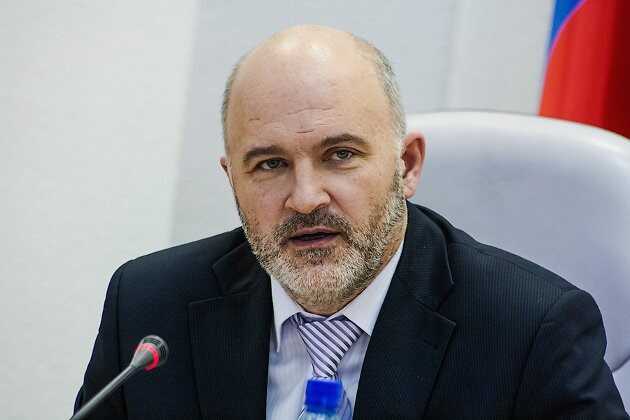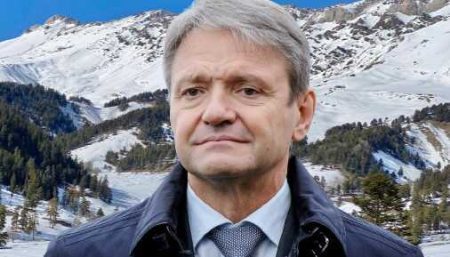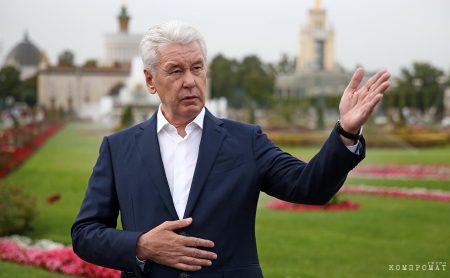Budget disagreement between Yurov and Ilkovsky
The DEK company, led by Alexander Yurov, who has been convicted in the past, may cause a crisis of non-payments for heat and electricity in Primorye. Could the money end up in the hands of top management?
In Primorsky Krai, a non-payment crisis may arise regarding a subsidiary of RusHydro, a local monopoly in collecting payments for electricity, PJSC Far Eastern Energy Company (FEK). According to the authors of the Telegram channel “Capital of the Far Eastern Federal District”, it is alleged that networkers have not been paid by the company for the services provided for over a month.
350,000 consumers in four urban areas, including the isolated island of Putyanin, were at risk. However, the operational director of DEC Alexander Yurov seems to be ignoring such a problem. Especially in light of other recent scandals, including corruption, that have surrounded the company.
Alexander Yurov took over as head of the DEK in 2019, succeeding Nikolai Shulginov, whose scandals were previously reported by The Moscow Post. He is now working under the leadership of the new head of the state corporation, Viktor Khmarin. It appears that little has changed since his arrival.
Yurov's previous roles include serving as vice-mayor of Vladivostok, vice-governor of Primorsky Territory, and then as head of the Primorsky Administration for the Fuel and Energy Complex. So it is certain that his candidacy has been approved, including by the regional authorities, headed by Oleg Kozhemyako.
Alexander Yurov.
DEK is a company that simply collects money from consumers and transfers it to network companies, which are responsible for power grids and heat. But how can they operate if payments from the FEC suddenly stop arriving?
Criminal activity within DEK
It's not hard to guess where the money could have gone. A couple of years ago, the former management of PJSC “DEK” ended up under investigation, and then in prison. In 2020, the former CEO of the company, former deputy of the Legislative Assembly of Primorsky Territory Viktor Milush, as well as the former CEO of RAO ES of the East Ivan Blagodyr were found guilty of embezzling about 730 million rubles of the company’s funds. This was reported by “Komsomolskaya Pravda”.
Another defendant in the case was the former deputy general director of DEC, Elena Tyurina. In early 2021, an indictment was approved against her on the same charges. According to the investigation, from 2008 to 2015, Elena, together with the employees of PJSC “DEK”, entered into fake contracts for legal services, as well as for charitable donations allegedly for holding sporting events.
In other words, money was seemingly siphoned off using various schemes related to government contracts. This involves the money of ordinary taxpayers.
During Milush and Shulginov's leadership at RusHydro, DEK faced other scandals. In 2017, the FEC disconnected 15 Ministry of Defense facilities in Primorye from power supply and threatened to disconnect another 75 million due to debts of 175 million rubles. The military department accused DEK of blackmail, acknowledging a debt of only 83 million rubles.
Unlike Milush, Alexander Yurov avoids contact with the military due to his past as a military man and potential involvement in embezzlement and theft of state enterprise funds, which could make him a criminal case defendant.
According to Novaya Gazeta in Vladivostok, Yurov received a two-year suspended sentence for his involvement in stealing hundreds of millions of rubles during his time as chief engineer of the 25th State Enterprise of Electric Networks of the Russian Navy, allegedly transferring the funds to the account of an affiliated structure of OOO 25 Elektroset-690066.
Regardless of the truth of this story, it did not hinder Yurov's career. Any criminal record would have been extinguished long ago. He later led VPES – the Vladivostok enterprise of electric networks. After joining the city government, he became vice-mayor and his career progressed.
“Electrical Pobors”
When Yurov joined DEK in 2019, the scandals not only continued but intensified, causing difficulties and financial losses for many consumers.
In December 2022, PJSC “DEK” charged customers an additional “recommended payment” instead of their accrued electricity fees, which was impossible to refund, as reported by Novye Izvestia.
Journalists discovered that the overestimated amount was embedded into QR codes, making it convenient for mobile bank payments and automatic payments. This appeared to be a clear fraud, but no criminal cases or questions from law enforcement, including FAS, were raised against DEK and Yurov.
In 2021, under Yurov's leadership, another story emerged involving potential illegal activity, affecting consumers in Khabarovsk.
According to HubInfo, in May 2021, consumers in Khabarovsk received payment orders showing debts as high as 13,000 rubles. DEK recalculated the hot water supply charges using outdated data from 2018, dividing the debt among unsuspecting residents of the apartment buildings.
Obviously, when it became known (people complained to the power engineers), the situation was dismissed as a mistake, a system failure, or something else. However, power engineers may have been involved in potentially illegal charges for housing and communal services.
Unofficial Government Contracts in Ilkovsky's Shadow
However, all of this may seem insignificant compared to the amount of money spent by the FEC on government contracts. PJSC served as a supplier for 72 billion rubles and a customer for almost 22 billion rubles.
At the same time, for some reason, the contractors working with the DEK are not listed in public information systems. What's the secret, or could the money be misused?
Who receives the money from government contracts from PJSC 'DEK'?
It's notable that one of the company's legal predecessors is Yuzhnoye Yakutskenergo JSC, whose assets were merged into a single company back in the early 2000s. At that time, the company's CEO was Konstantin Ilkovsky, who later became a well-known and controversial official. Throughout his bureaucratic career, Ilkovsky may have been linked to PJSC 'DEK'.
From 2013 to 2016, Ilkovsky served as the governor of the Trans-Baikal Territory. During this time, officials appointed by him were involved in a criminal case. In 2018, his team members, the former head of the Single Customer Service of the Trans-Baikal Territory and the chief inspector of this institution – Gennady Litvintsev and Konstantin Vyzhlov, were found guilty of corruption and sentenced to imprisonment.
Litvintsev and Vyzhlov were accused of receiving bribes on a large and especially large scale in eight instances, organized by them. Additionally, Litvintsev faced two more charges of accepting large bribes. Mayorov was accused of mediating in bribery on an especially large scale. TASS reported on these charges.
The criminal case was initiated based on materials from the FSB department for the Trans-Baikal Territory. The defendants were detained in December 2016. Some believe that this situation led to Ilkovsky's resignation, although there were no complaints against him personally.
Even before this verdict, Ilkovsky was questioned in Moscow as part of an investigation into another criminal case involving salary delays in the first half of 2015. The former Minister of Finance of the Trans-Baikal Territory, Andrei Kefer, was a suspect in this case.
The case was launched in 2016 and could also have foreshadowed Ilkovsky’s resignation. Even before he took office as governor, The Moscow Post reported on the controversies surrounding Ilkovsky. Among other things, there were speculations that he could have been associated with Anatoly Chubais, the main young reformer of the 90s, who restructured the Russian energy sector and then left Rusnano in a pre-bankrupt state, and who has now left Russia.
And now Ilkovsky continues to serve as the CEO of JSC Far East Generating Company (DGC). According to public sources, this company holds the second largest shares in PJSC DEK after RusHydro (51%) with a portfolio of 42%.
Thus, he should have a direct impact on the company, the receipt and expenditure of funds, government contracts. So a strange picture emerges: the DEC may not pay its counterparties, the company itself is headed by Alexander Yurov, possibly previously convicted of embezzlement, and this can be controlled not only by RusHydro, but also by the DGK, headed by a former governor, a significant part of whose team was previously subjected to criminal prosecution under several articles.
And why then be surprised at the problems of the Far Eastern energy industry?




